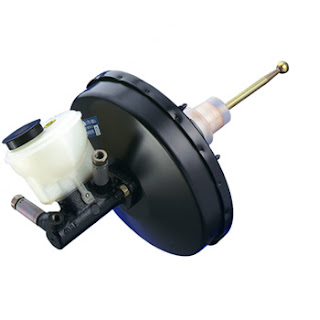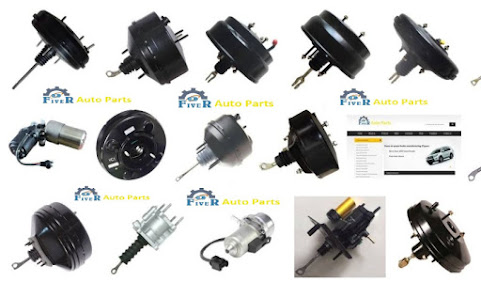Are Your VW Brake Boosters doing Their Job?
The VW part that really amplifies your foot pedal pressure is the VW Brake Boosters. As you footstep on the pedal, the brake booster enhances the performance of built-in assist, which effectively multiplies the applied force to function a vacuum through the rubber hose, which runs from the intake manifold. The brake booster increases the compression in the master cylinder to energy other brake system components to come in contact with the brake discs and ensure stoppage. Backed by German precision engineering, brake boosters require built-in assist which you cannot find in drum brake vehicles.
There are cases when you have installed all
brand new pistons, seals, hoses and pads in all wheels and also the hand brake.
Then, after flushing the system and putting in the recommended fluid and
bleeding properly, you still get a very hard pedal and very poor braking. You
might suspect that the VW Brake Booster
is not doing its job. Although when you pump the pedal a couple of times to
expel the vacuum then put light pressure on the brake pedal with your foot and
start the engine, you can feel the pedal get not greatly pulled down.
The thing to do is to have full engine
vacuum at the booster, about 18" of vacuum. Any less then that you have in
a vacuum can give a problem. Do some tests and inspections.
First in the testing process is to raise
and support the front of the vehicle. Be sure one wheel will rotate freely.
Start the car engine and allow vacuum to accumulate. Then, apply brake pedal
several times. Be sure wheel is free to rotate immediately after pedal is
released. If brakes bind, it means the booster is faulty.
With the car engine is running, apply brake
pedal several times and check operation of pedal. If response is sluggish, then
check the condition of vacuum hoses and booster unit air filter. Allow vacuum
to build up, then switch off engine and operate brake pedal.
Pedal should be vacuum assisted for
approximately three applications. Any less in applications will imply a leaking
vacuum system or an inoperative check valve.
Operate brake pedal several times to
evacuate any vacuum left in system with engine switched off. While maintaining
light pressure on brake pedal, start the car engine. If booster unit is
operating correctly, pedal will fall under existing pressure. However, if pedal
remains stationary, it means there is a leak in the vacuum system.
With engine running, apply and hold brake
pedal. Then, switch engine off. If pedal rises against foot pressure, it means
the booster is faulty.
Those mentioned tests on the vacuum system,
however, should only be performed if the hydraulic system is in satisfactory
condition.
For more about your Volkswagen parts needs
VW brake boosters, visit your trusted online source https://www.fiverbrakebooster.com.




Comments
Post a Comment